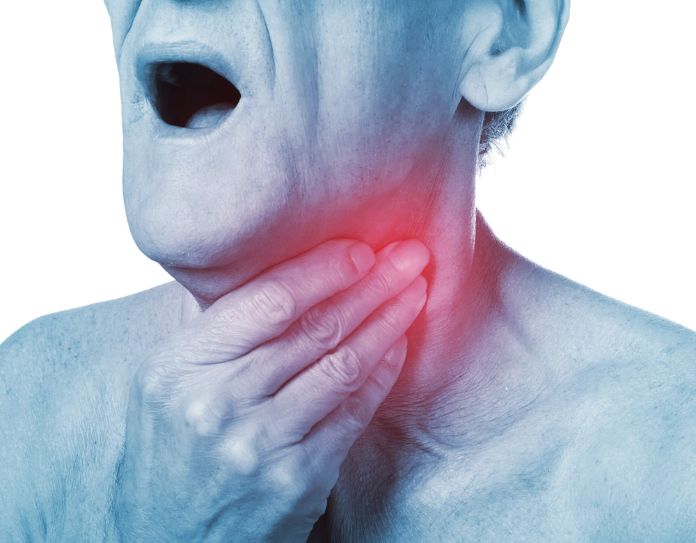Acute/chronic symptoms
Laryngitis can cause both acute (short-lived) and chronic (long-lasting) symptoms. Acute laryngitis usually comes on suddenly and lasts for around 1 week, while chronic laryngitis is a more persistent and uncomfortable condition that can affect your voice and overall health for weeks or months.
Symptoms of Acute Laryngitis
If you have acute laryngitis, it is characterized by a sore throat and hoarseness. It can be caused by a virus or other problem that irritates your vocal cords, like acid reflux disease or straining your voice.
Common infectious causes of acute laryngitis include the flu, adenovirus, rhinovirus, and respiratory syncytial virus. It can also be caused by a bacterial infection or a fungal infection.
Acute/chronic laryngitis can be a sign of another health problem, so it’s important to see your doctor if your symptoms persist for more than a week or if they get worse. A doctor may perform a physical exam and use a laryngoscopy to check your larynx.
Throat pain
The most common symptom of acute laryngitis is pain in the throat, which can feel as if your throat is being broken. You may also experience a feeling of a lump in your throat or a dry cough. You may also have difficulty swallowing or a fever.
Other signs and symptoms of acute laryngitis include a swollen lymph node in the neck, difficulty swallowing, a low-grade fever and an aching throat. If you have a high fever, you should see your doctor immediately.

Throat swelling and mucus production
Other symptoms of chronic laryngitis are a feeling of pressure in the throat, trouble breathing and a feeling of a lump in your chest. You may also have trouble swallowing or a hoarse voice that won’t go away.
Your throat might be red, swollen and tender to the touch. You may also have a bad taste in your mouth or have trouble swallowing. If you notice a lump in your throat, gargling with warm salt water can help relieve this symptom and kill any bacteria that might be in your throat.
Sucking on a throat lozenge can also increase saliva production and reduce inflammation in the throat. You can also try using a humidifier to help keep your throat moist and fight off the infection.
A doctor may prescribe antibiotics for bacterial or fungal laryngitis, but these drugs are not effective in treating viral laryngitis. The goal is to treat the symptoms of laryngitis and prevent future episodes.
Treatment for Acute Laryngitis
For acute laryngitis, the best thing you can do is rest your voice and drink plenty of fluids to keep your throat hydrated. You should also avoid smoking and contact with irritants that can irritate your throat.
You can take over-the-counter medications to relieve the pain, such as ibuprofen or paracetamol. You should avoid any activities that strain your voice, such as public speaking and singing.
Taking antihistamines can also reduce the symptoms of acute laryngitis. These medicines are also available over the counter at your local pharmacy.









